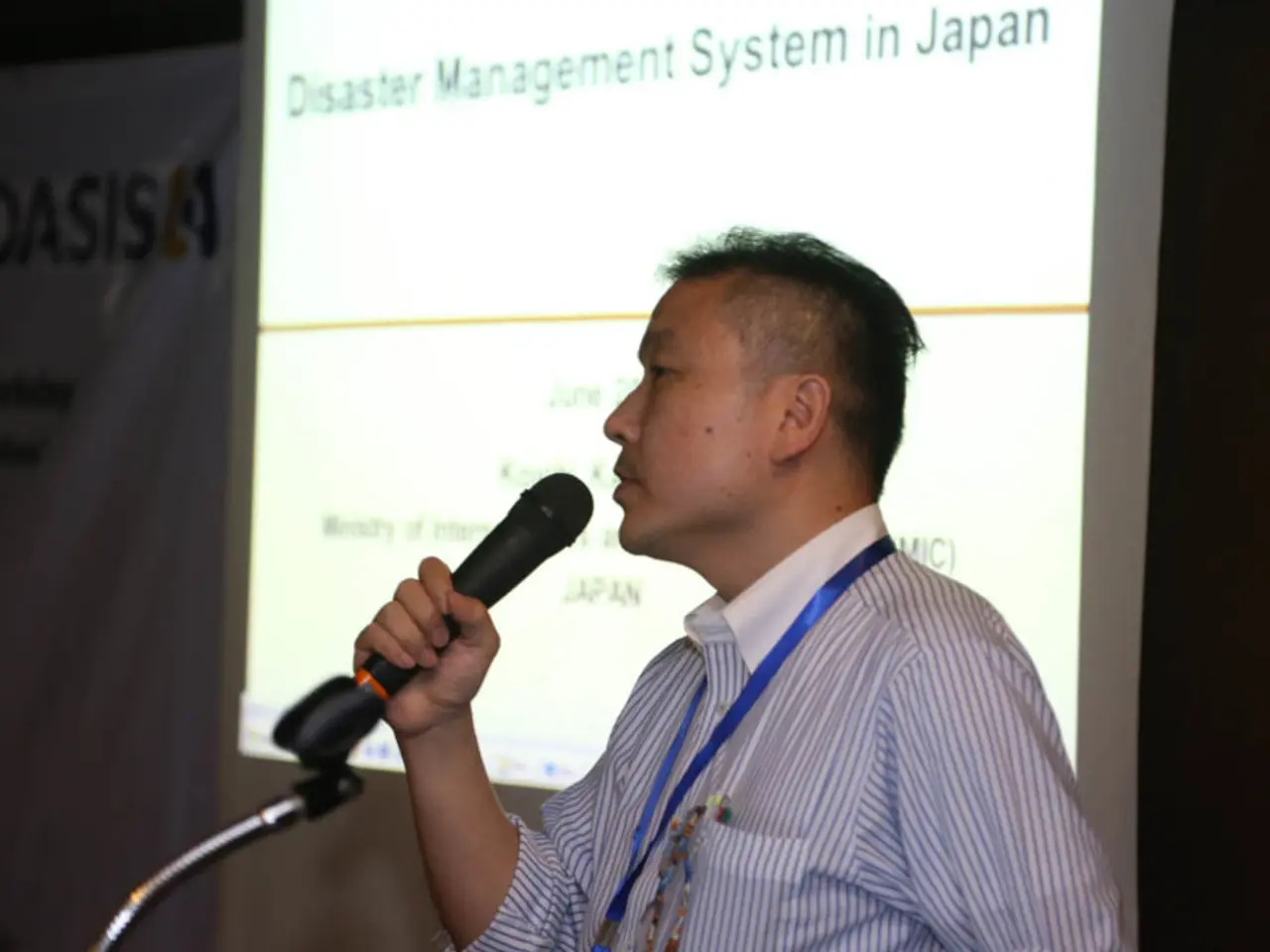Japanese politician endorses Abe's "Taiwan crisis strategy"
In the political landscape of Japan, the Sanseito party, led by Sohei Kamiya, has been making waves with its conservative and nationalist agenda. Founded in 2020, the party has gained a significant presence, winning 14 seats in the House of Councillors in last month's elections [1].
Sanseito, which is not anti-globalism but opposes capitalist monopolies resulting from globalism, has been vocal about its stance on Taiwan. The party hopes to organize a delegation to Taiwan, including all 18 of its upper house members, and urges more Japanese lawmakers to participate in Taiwan-Japan collaborations [2].
Kamiya, the founder and secretary-general of Sanseito, has been a vocal critic of the lack of high-level dialogue between Taipei and Tokyo and the absence of formal diplomatic relations. He has also expressed concerns about China's infiltration in Japan, citing the increased number of Chinese who have received Japanese citizenship and are active in politics [3].
However, the party's specific views or proposed policies about Taiwan-Japan security cooperation or their diplomatic stance towards Taiwan are not explicitly stated in the available information. Sanseito's foreign policy stance might prioritize Japan’s national interests with a strong sovereignty focus, but concrete details about Taiwan-related security collaborations or bilateral relations are not documented [1][2].
Kamiya has, however, supported the concept "a Taiwan contingency is a Japan contingency," indicating a potential focus on Taiwan's security as being intertwined with Japan's own [4].
Sanseito has been involved in various activities aimed at increasing Taiwan-Japan interaction. The party has protested against Nagasaki City Council for not inviting Taiwan to the atomic bombing ceremony and hopes to increase Taiwan-Japan interaction through the Japan-ROC Diet Members' Consultative Council [2].
The party also promotes civilian and local collaborations between Taiwan and Japan, emphasising the importance of people-to-people ties in fostering a harmonious relationship [5].
Despite criticism from traditional media, Sanseito has been positively received on social media. The party's focus on economic conservatism, tax cuts, public spending expansion, opposition to progressive social policies, and its "Japanese First" approach have resonated with some segments of the Japanese population [1][2].
However, Sanseito has also faced criticism for advocating for limiting immigration and foreign capital, and for its initial focus on anti-vaccine and anti-masking policies [6].
The Global Times, a Chinese state-owned newspaper, has portrayed Sanseito as aiming to make Japan a military and political powerhouse [7]. Whether this characterisation is accurate or not remains to be seen as the party continues to shape its foreign policy and engage with Taiwan.
[1] Sanseito Party Wins 14 Seats in Upper House Elections
[2] Sanseito Party's Taiwan Ambitions
[3] Kamiya Warns of China's Infiltration in Japan
[4] Kamiya Supports "Taiwan Contingency is a Japan Contingency"
[5] Sanseito's Focus on People-to-People Ties with Taiwan
[6] Criticism of Sanseito's Policies on Immigration and Foreign Capital
[7] Global Times Portrays Sanseito as Aiming to Make Japan a Military Powerhouse
Read also:
- Massive 8.8 earthquake hits off the coast of Russia's Kamchatka Peninsula, prompting Japan to issue a tsunami alert.
- Court petitions to reverse established decision on same-sex marriage legalization
- Proposed Standardization of Food Labeling Laws Among Member States by the Commission
- Experimenting with Merz's Germany has stretched into an extended period of time, resembling a numerous three-month duration.







